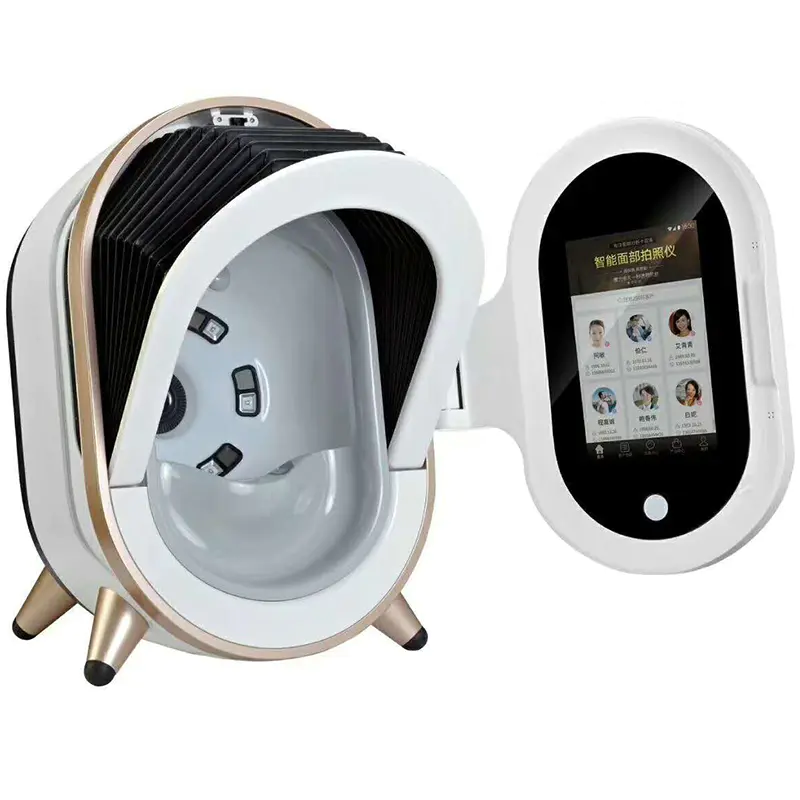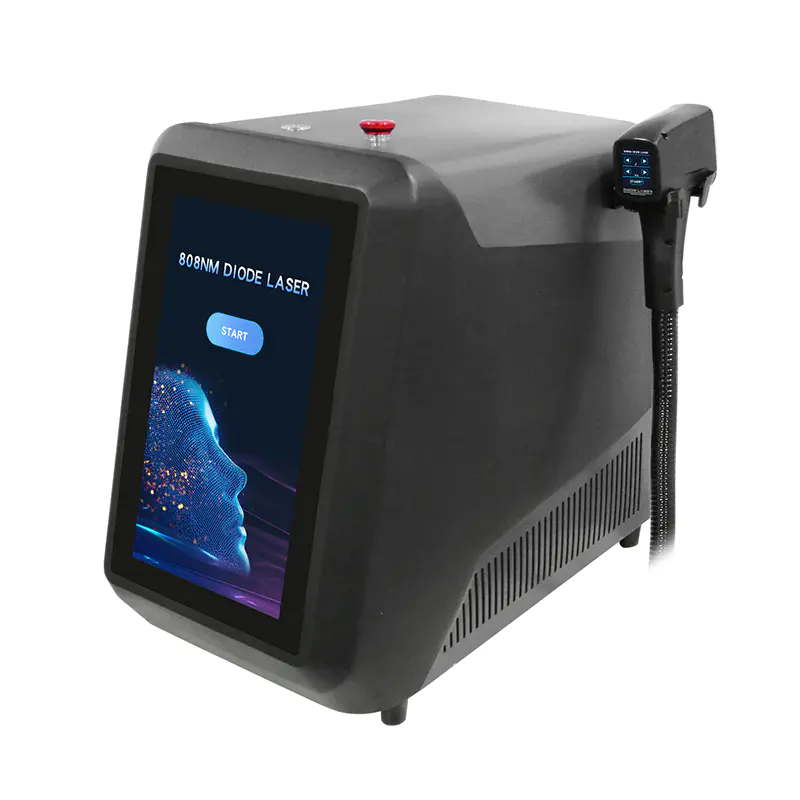How to Navigate Import and Export Certifications for the Best HIFU Machine in the Global Market
In today’s competitive global market, acquiring the best High-Intensity Focused Ultrasound (HIFU Machine) is crucial for medical practitioners striving to offer top-notch services. However, successfully navigating the intricacies of import and export certifications can be a daunting task for many suppliers and distributors. Understanding the regulatory landscape is essential not only for ensuring compliance but also for building trust with potential clients.
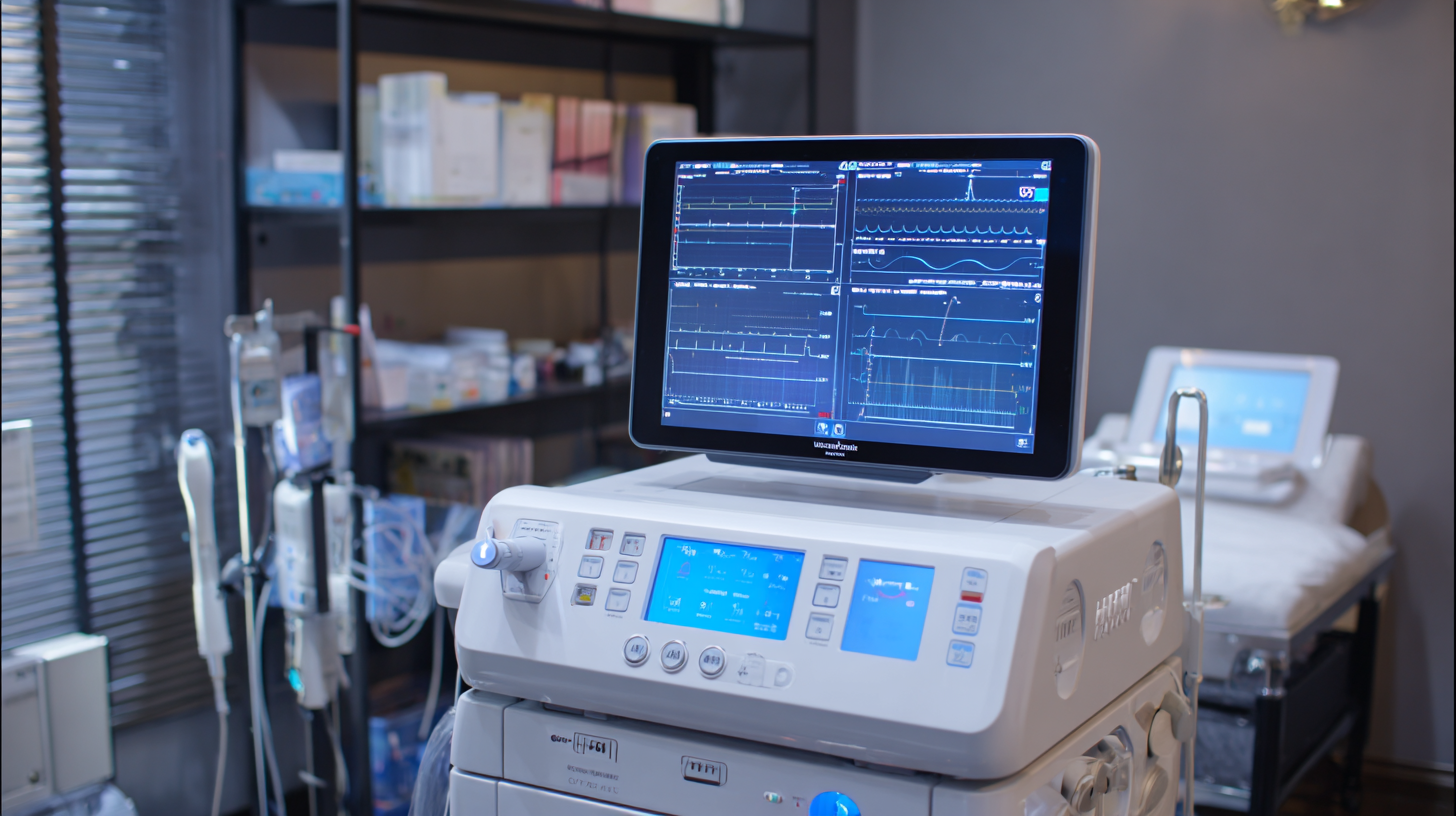
In this blog, we will explore effective strategies to identify quality suppliers, emphasizing the importance of certification in enhancing product reliability. By equipping yourself with the right knowledge and tactics, you can streamline the procurement process and make informed decisions that will ultimately lead to the successful integration of HIFU Machines into your practice.
Join us as we uncover the best practices to help you thrive in the international marketplace.
Understanding Import and Export Regulations for HIFU Machines: A Comprehensive Guide
Navigating the import and export regulations for High Intensity Focused Ultrasound (HIFU) machines is crucial for businesses aiming to compete in the global market. With varying requirements across countries, understanding the nuances of these regulations can save time and resources. For instance, recent regulatory changes in India have tightened import rules for certain equipment, necessitating that only qualified entities can bring these machines into the country. This shift highlights the importance of staying updated on evolving legal frameworks that directly impact HIFU imports.
**Tip:** Always consult the latest trade reports and guidelines from authoritative sources to stay informed about compliance requirements specific to your target market.
In the context of the European Union, companies must navigate the EU’s strict import regulations, particularly with the ongoing sanctions against Russia affecting broader trade dynamics. The EU places considerable emphasis on ensuring that imported medical devices, including HIFU machines, meet stringent safety and efficacy standards. Understanding these criteria can streamline your export process and mitigate potential delays.
**Tip:** Engage with trade compliance experts who can assist in interpreting the complex regulations and help develop tailored strategies for compliance in diverse markets.
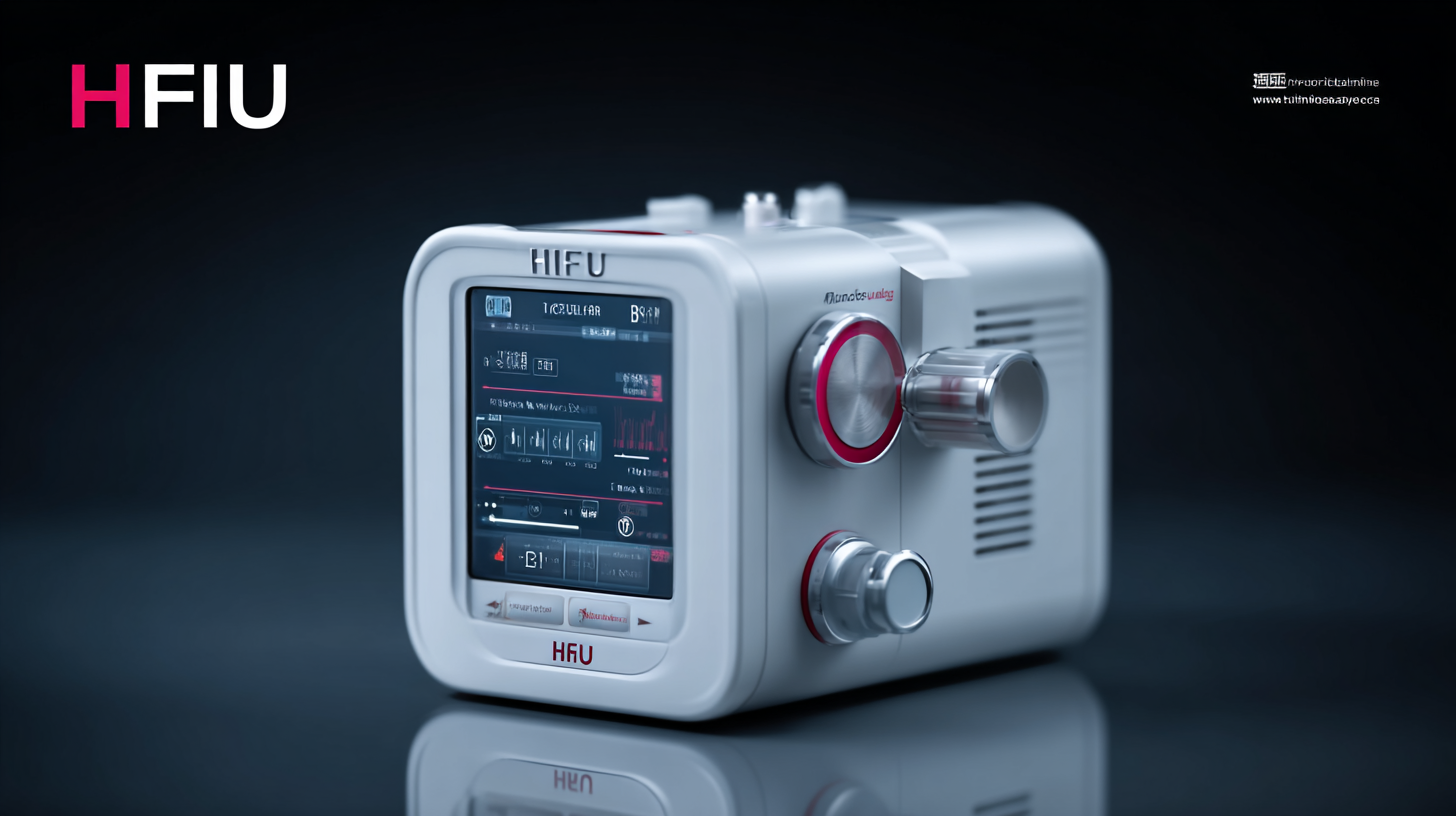
Key Certifications Required for HIFU Machines in International Markets
When considering the global market for High-Intensity Focused Ultrasound (HIFU) machines, understanding the essential certifications can significantly impact import and export processes. Key certifications such as CE marking in Europe, FDA approval in the United States, and ISO 13485 for quality management systems are pivotal. These certifications ensure that HIFU machines meet safety and performance standards, making them more attractive to international buyers.
Tip: Before initiating import or export, verify the specific certification requirements in your target market, as regulations can vary widely. Often, engaging with a local regulatory consultant can streamline this process and help navigate complex legal requirements.
Moreover, staying updated on changes in regulations and certifications is crucial. For instance, emerging technologies may lead to new standards that must be met. Companies should consistently invest in knowledge and training regarding compliance to maintain a competitive edge.
Tip: Consider joining industry associations that provide resources on certification updates and regulatory changes. This proactive approach will not only enhance compliance but also build trust with partners and customers globally.
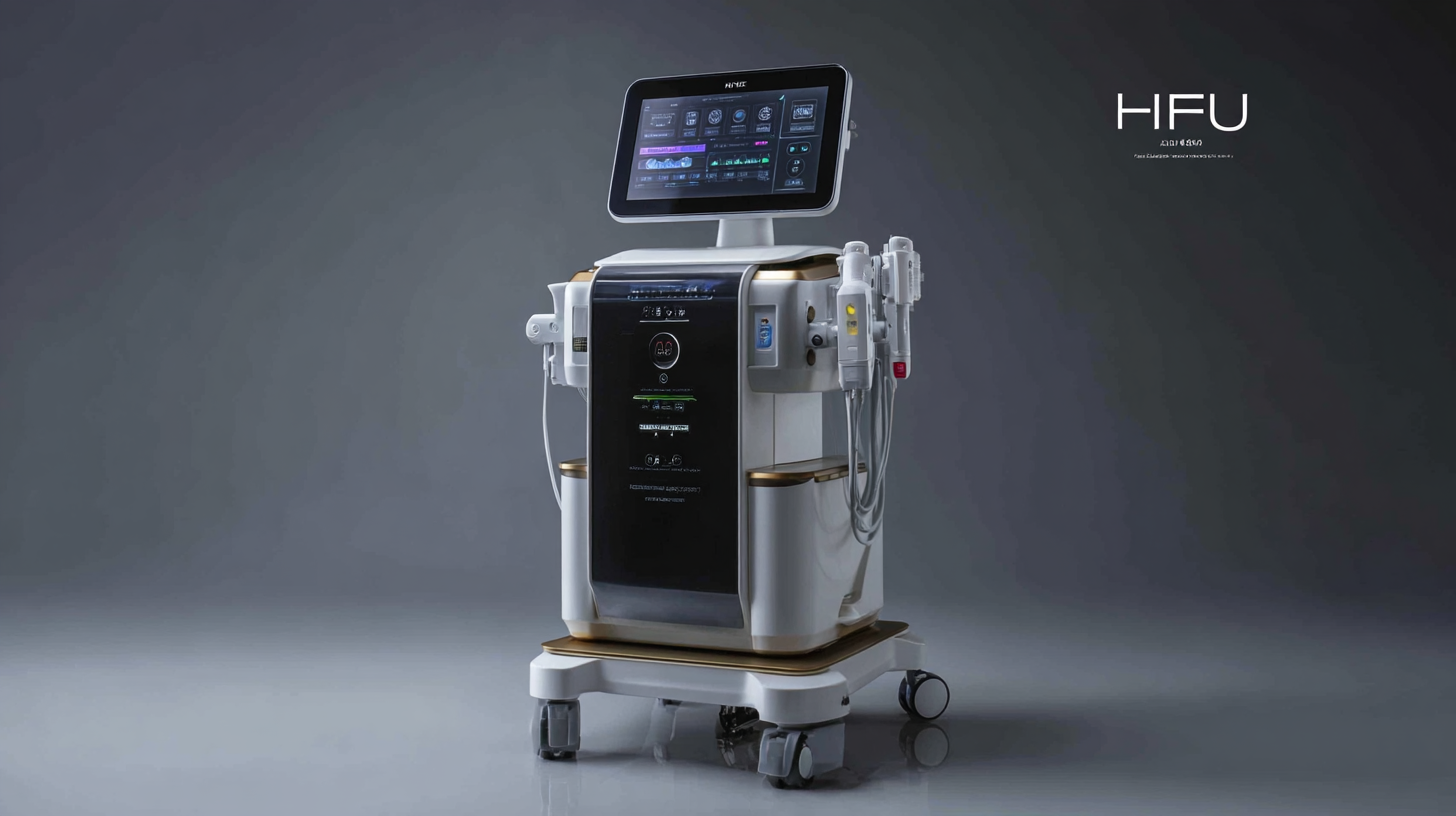
Evaluating After-Sales Service: Importance for HIFU Machine Importers
When considering the importation of HIFU machines, the importance of after-sales service cannot be overstated. Many businesses are drawn to cheaper options from overseas manufacturers; however, these lower-priced machines often come with a hidden cost—poor quality and safety concerns. Cheap, unsafe machines can not only jeopardize client safety but also tarnish the reputation of the beauty industry as a whole. Therefore, evaluating the after-sales support provided by suppliers becomes crucial.
**Tips for Assessing After-Sales Service:**
- **Research Supplier Reliability:** Look for reviews and testimonials from other importers who have used the supplier's machines. A reliable supplier will have a proven track record of effective customer service and support.
- **Inquire About Training:** Ensure that the supplier offers adequate training to your staff on operating the HIFU machine safely and effectively. This will help mitigate risks associated with improper use.
- **Check Warranty and Support Policies:** Understand the warranty terms and the type of ongoing support offered. A good supplier should provide comprehensive support and be willing to assist with any issues that arise post-purchase.
By placing importance on these aspects of after-sales service, importers can not only protect their business but also contribute positively to the reputation of the beauty industry.
How to Navigate Import and Export Certifications for the Best HIFU Machine in the Global Market - Evaluating After-Sales Service: Importance for HIFU Machine Importers
| Dimension | Criteria | Importance Level | Comments |
|---|---|---|---|
| Certification Types | CE, FDA, ISO 13485 | High | Essential for legal compliance in various markets. |
| After-Sales Support | Technical Assistance, Spare Parts Availability | Critical | Directly impacts customer satisfaction and product longevity. |
| Warranty Terms | Duration, Coverage | High | A comprehensive warranty reassures buyers about product quality. |
| Customer Training | On-site Training, Online Resources | Moderate | Training helps in utilizing the equipment efficiently. |
| Response Time | Time to Resolve Issues | High | Faster resolutions enhance user trust and satisfaction. |
Cost Analysis of HIFU Machine Repairs and Maintenance in the Global Market
When it comes to the maintenance and repair of HIFU (High-Intensity Focused Ultrasound) machines, understanding the costs involved is crucial for healthcare providers and clinics worldwide. According to a report by Grand View Research, the global ultrasound market, which includes HIFU devices, is expected to reach USD 9.5 billion by 2026, making it essential to consider not just the initial investment but also ongoing maintenance costs. The average annual maintenance expense for a HIFU machine can range from 10% to 15% of its initial purchase price, which can be significant given that leading models are priced between USD 100,000 and USD 300,000.
Tip: To optimize costs, healthcare facilities should consider establishing preventive maintenance schedules. Regular servicing can decrease the likelihood of unexpected repairs, ensuring optimal machine performance and longevity.
Moreover, repair costs can accumulate quickly, with some reports indicating that parts replacement and repairs can cost clinics upwards of USD 20,000 annually. It's advisable for clinics to invest in comprehensive service contracts that cover parts and labor, as this can lead to substantial savings down the line.
Tip: Consulting with multiple vendors for maintenance and repair contracts can yield the best deals, ensuring that clinics receive quality service without overspending.
Navigating the Compliance Landscape: Tips for HIFU Exporters and Importers
Navigating the compliance landscape for HIFU (High-Intensity Focused Ultrasound) machines is crucial for both exporters and importers. Given the increasing demand for non-invasive cosmetic procedures, the global HIFU market is projected to reach approximately $1.2 billion by 2023, according to a report by Grand View Research. However, businesses must be well-versed in the certification requirements that vary significantly across different regions. For instance, CE marking is essential for selling in Europe, while the FDA approval is a must for the United States market. Understanding these regulatory demands is vital to avoid costly delays and ensure patient safety.
Moreover, non-compliance can lead to substantial penalties and disruption in supply chains. A recent analysis highlighted that companies operating without proper certifications faced an average of 30% higher costs related to recalls and legal issues. Therefore, HIFU exporters and importers should invest in compliance training and stay updated with the latest regulations to remain competitive. Utilizing platforms like the Regulatory Affairs Professionals Society (RAPS) can be beneficial in navigating this complex landscape and ensuring compliance with international standards.
News
- What Can A Professional Skin Care Analyzer Do For Facial Treatment?2025/03/18
Facial treatment (using skincare products or various machines) has been very popular. What can a professional skin care analyzer do for facial treatment?
- What Are Upper Lip Hair Removal Machine Side Effects And How to Avoid?2025/03/13
Lip hairs are very unsightly, especially for female. Other traditional hair removal methods (such as shaving and depilatory creams) unluckily cause more hair.
Products
Inquiry For Price List
For inquiries about laser hair removal, hifu machine, cryolipolysis machine or price list, please leave your email to us and we will be in touch within 24 hours.
Contact Us
- Fanghu West 2nd Road, Huli District, Xiamen City, Fujian Province, China
- sale@bitasbeauty.com






















